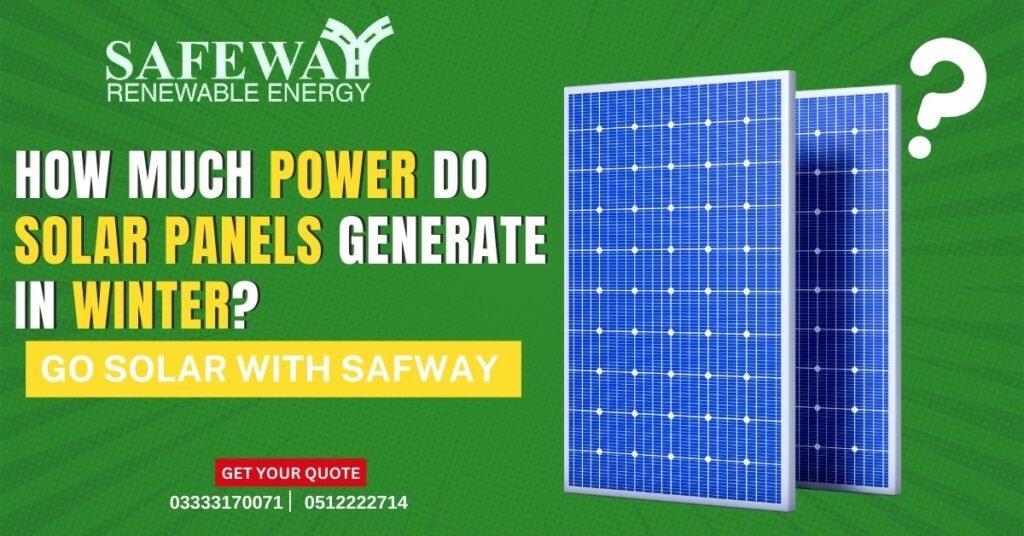
Introduction:
With the winter months quickly approaching, many people are wondering how much power their solar panels will generate during the colder season. It’s a common misconception that solar panels don’t work as well in winter due to reduced daylight hours and low temperatures.
However, this is not necessarily true – solar panels still generate electricity when the sun is shining, regardless of air temperature. Let’s explore why.
How much power do solar panels generate in winter?
How much power do solar panels generate in winter? This is a question that many people have, and it is a valid question to ask. The amount of power generated by solar panels depends on the amount of sunlight that they receive.
In order to understand how much power solar panels generate in winter, we need to first understand how sunlight affects their output. The amount of sunlight that solar panels receive depends on the geographic location. This is why it is important to know what region you live in and its average insolation values.
Insolation maps provide us with information about the peak sun hours (PSH) that an area receives during different times of the year, such as monthly or yearly averages.
For example, if you are planning a solar system for an off-grid home, then you would want to look at the average PSH values for months with less sunlight, normally winter months. If your solar system is for a grid-connected home, then you would use the yearly average value instead.
Once you have this information, then you can determine how much power your solar panels will generate during winter months. To summarize, the amount of power generated by solar panels in winter depends on their geographic location and the average PSH values for that area.
By using insolation maps to find the necessary information, you can determine how much power your solar system will generate during winter. With this knowledge, you can make more informed decisions about your solar system and ensure that it is generating the most efficient energy possible.
Why Do Solar Panels Work in Winter?
Solar cells rely on light energy from the sun to create electricity, not warmth from the air or direct sunlight touching them.
This means that even though there are fewer hours of daylight in winter, solar panels can still produce electricity for your home or business if they receive adequate light (this also depends on geographical location and seasonal fluctuations).
Furthermore, cold temperatures actually increase solar panel efficiency as cooling helps reduce electrical resistance and improves cell performance.
How Can You Maximize Your Solar Panel Performance in winter?
To ensure your solar system is running optimally during winter months, it’s important to keep your panels free of snow and ice accumulation. When possible, use a soft brush or cloth to clear any snowfall off the panels – try not to scrape them with hard objects as this can damage their surface coating.
Additionally, make sure to check your system periodically for any signs of wear and tear – particularly around wiring systems or frames as these areas may be more prone to corrosion caused by extreme weather conditions.
Finally, take advantage of Southern facing roofs which tend to get more sunlight throughout winter months than other directions – this can help maximize your panel’s performance during periods of reduced sunlight.
Temperature Effects on Solar Panel Output
Solar panels generate more energy when they are exposed to direct sunlight and higher temperatures. When temperatures drop below freezing, efficiency decreases because the photovoltaic cells become less responsive to light as temperatures decrease.
This means that if you live in an area where outdoor temperatures drop below freezing for extended periods of time, your solar panels won’t be able to produce as much energy as they do in warmer weather.
Snow Cover Effects on Solar Panel Output
Snow can be one of the biggest issues for solar panel output during winter. While snow is not necessarily bad for solar panels (it actually helps reflect light and increases absorption), large accumulations of snow can block out much of the sunlight needed for efficient photovoltaic cell operation.
To keep your solar panels clear of snow, you may need to invest in a rooftop snow rake or other specialized equipment to remove any snow buildup during the winter months.
Proper Maintenance During Winter Months
In addition to regularly clearing any snow buildup from your rooftop, it is also important to make sure that all components in your solar system are functioning properly and free from debris or other obstructions throughout the year—especially during winter months when extra care should be taken due to cold weather conditions and shorter days with less sunlight.
Regularly cleaning off dust and dirt will help ensure optimal performance from your system all year round.
Conclusion:
In conclusion, solar panel performance isn’t significantly affected by cold weather conditions; however it is important to ensure that your system is maintained regularly during these months so you can continue taking advantage of its benefits all year round! If you have any questions about how best to care for your system during wintertime, contact us– we’re always here to help!
